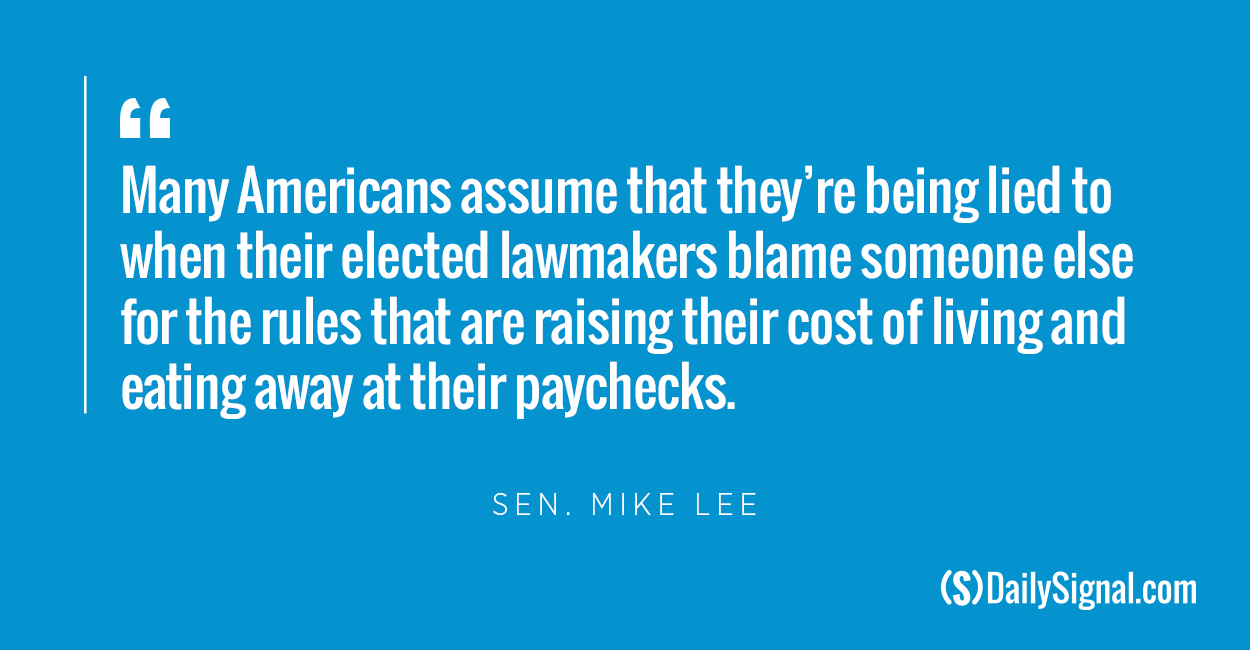Of all the words that the American people use to describe Congress today, one of the most common—and accurate—is unaccountable.
As hardworking men and women across the country continue to protest dysfunctional and costly regulations, the response from their elected lawmakers remains the same: blame is shifted, fingers are pointed, and scapegoats are brought forth to defend those who are charged with making the laws.
This is the very definition of unaccountability, and it pervades the culture of Washington because Congress has allowed it to infect our institutions.
Many Americans assume that they’re being lied to when their elected lawmakers blame someone else for the rules that are raising their cost of living and eating away at their paychecks.
But the truth is actually more troubling. Most of the items on the federal government’s list of do’s and don’ts are not written and passed by Congress at all—they are imposed unilaterally by unelected bureaucrats in one of the executive branch’s many administrative agencies.
No wonder federal regulations are estimated to cost the American people between $1 trillion and $2 trillion every year. And those trillions of dollars don’t just evaporate. They’re transferred from families and businesses who pay artificially inflated prices to all the special interest middle men who get rich off red tape.
For those who recognize the moral and material problems of hiding the regulatory process in a faceless bureaucracy, the REINS (Regulations From the Executive in Need of Scrutiny) Act provides a commonsense solution. This bill would require congressional approval for all major regulatory rules, so that members of Congress would no longer be able to blame executive agencies for costly regulations.
Unfortunately, even with 37 cosponsors in the Senate and the endorsement of a majority in the House, support for the REINS Act has yet to reach a critical mass in Congress. But hope for regulatory reform is not lost.
As Congress proceeds through the appropriations process this Spring, each spending bill presents an opportunity to advance structural reforms that would restore congressional accountability over federal regulations.
Think of it as the REINS Act in miniature: As each spending bill comes before Congress, reform-minded lawmakers have the opportunity to attach a REINS-like amendment requiring congressional approval for all major rules issued by the executive agencies that are funded by that particular bill.
Last week, I pursued this strategy by trying to introduce an amendment that would restrict the Department of Energy from spending any funds to implement or enforce regulations whose compliance costs exceed $100 million, unless specifically approved by Congress.
Regrettably, my amendment was blocked. But I’m confident that the defenders of the dysfunctional status quo will find it increasingly difficult to obstruct commonsense reforms that will make Congress more accountable to the public, because if Congress is ever going to win back the trust of the American people, we must prove that we are trustworthy. And the best way to do that is to make ourselves once again accountable for the consequences of the laws of this country.





























